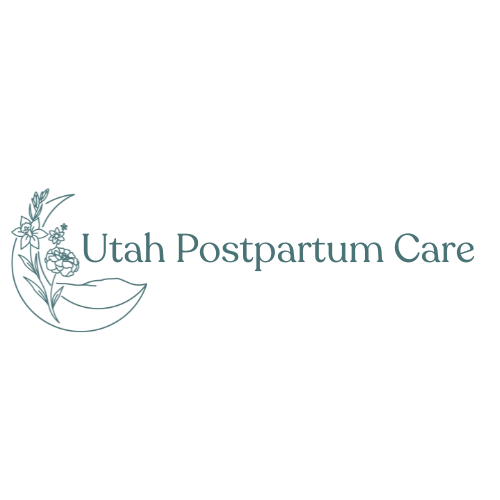Reconnecting With Your Body After Birth
Reconnecting With Your Body After Birth

You deserve to give yourself some credit. You just did something incredible. You carried a human for nine months, brought them into the world, and now you’re recovering from a marathon you didn’t exactly train for.
And yet, everywhere you look, someone is telling you to “bounce back,” as if your body owes the world a return to your pre-baby self overnight. But here’s the truth: you don’t owe anyone anything.
Reconnecting with your body after birth isn’t about getting it back. It’s about coming home to it again, learning to trust it, and honoring everything it has done for you.
Every Recovery Is Different
I had to recover from C-sections with a pain medication intolerance, which meant my healing looked very different from most people’s. I had to figure out what worked for my body, how to manage pain naturally, and how to rest even when I didn’t want to.
Everyone’s recovery is different because every birth is different. Some bodies heal quickly, others need more time. There’s no right or wrong way to recover, but what matters most is keeping your pain at bay, moving gently, and really listening to your body.
I pushed myself too soon. I wanted to bounce back as fast as possible, and it came back to bite me. Two years later, I ended up with an incisional hernia that needed to be surgically repaired. That experience taught me something big: slow really is strong.
Are We Really Ready at Six Weeks?
At the six-week mark, most parents are told they are cleared for exercise and sex. But cleared does not always mean ready.
Your body might still be sore, your energy might be low, or your emotions might still feel fragile. Healing is not linear, and readiness looks different for everyone. Give yourself permission to go slow.
The goal is not to get back to your old self. It is to get comfortable in the new version of you.
We have so many checkups for our babies: the two-week visit, six-week, three-month, six-month, nine-month vaccinations, and beyond. Each one gives us space to talk about their growth and milestones, to bring up concerns, and to get reassurance from the pediatrician.
But where are all those checkups for the mother?
The mother whose body is still healing.
The mother whose identity has shifted in every way.
The mother who might be quietly struggling to feel like herself again.
We get one postpartum visit, and then we are sent off with a “you’re cleared.” Cleared for normal life, even when nothing feels normal yet.
You deserve more care than a quick checkmark on a chart. You deserve ongoing support, honest conversations about how you are really feeling, and space to talk about the physical and emotional changes that do not stop after six weeks.
Your recovery matters just as much as your baby’s growth.
Move With Curiosity, Not Pressure
Exercise after birth is not punishment. It is a way to reconnect with your strength, flexibility, and energy.
Start with short, gentle walks or stretches. Notice how your body feels, not how it looks. Celebrate the small things like standing taller, taking a deep breath without pain, walking to the mailbox, or carrying your baby with more ease.
Think of movement as a conversation with your body. You are learning what it needs and what it is ready for. Be gentle with it.
Tune Into Your Needs
Social media will make you believe everyone snaps back in six weeks with abs and matching loungewear. Ignore it.
What your body actually needs right now is rest, hydration, nourishing food, and care. Pay attention to what you crave like water, protein, sunlight, or sleep, and give yourself permission to have it.
If your body feels tired, it is not being lazy. It is doing deep healing work.
Rediscover Joy in Small Ways
Even in the middle of healing, your body is still capable of joy.
Take a warm shower. Sit in the sun for ten quiet minutes. Stretch before bed. Dance around your kitchen to a song you love. Skin-to-skin with your baby counts too. That connection is just as healing for you as it is for them.
The goal is not to look a certain way. It is to feel like yourself again: steady, strong, and alive inside your body.
Get Support That Feels Right
You do not have to do this alone. Healing happens faster and gentler with the right support.
Reach out to:
- A postpartum doula for hands-on help, rest, and nourishment
- A pelvic floor therapist to rebuild strength and confidence
- A physical therapist who specializes in postpartum recovery
- A mental health therapist if you are navigating fear, grief, or body image challenges
We have amazing local recommendations for pelvic floor and physical therapy, and can help connect you with trusted providers in your area. Surround yourself with people who see the full picture: the physical, emotional, and mental parts of recovery, not just the outside.
A Gentle Reminder
Your body is not broken. It is recovering, adjusting, and learning a new rhythm. You do not have to rush it.
Give yourself permission to:
- Move slowly
- Rest often
- Eat what nourishes you
- Feel proud of what your body has done
Healing is not a race. Whether your journey feels smooth, slow, or messy, it is still yours, and that makes it sacred.
If you are struggling to feel at home in your body after birth, we are here to help. Postpartum support is about more than baby care. It is about helping you feel whole again.
Reach out to our team for the rest, care, and encouragement you deserve.
FAQ
How soon can I start exercising again after giving birth?
Most providers clear patients for exercise around six weeks, but that does not always mean your body is ready. Start slowly with gentle movement and check in with a pelvic floor therapist before beginning anything strenuous.
Why does my recovery feel so different from others?
Because every body and every birth is different. C-sections, tearing, complications, and even medication reactions all affect how your body heals. Comparing your recovery to someone else’s is never fair to either of you.
What kind of support can a postpartum doula offer during recovery?
A
postpartum doula can help with rest, meal prep, baby care, emotional support, and connecting you with resources like pelvic floor therapy and mental health specialists. We focus on your healing just as much as your baby’s adjustment.











